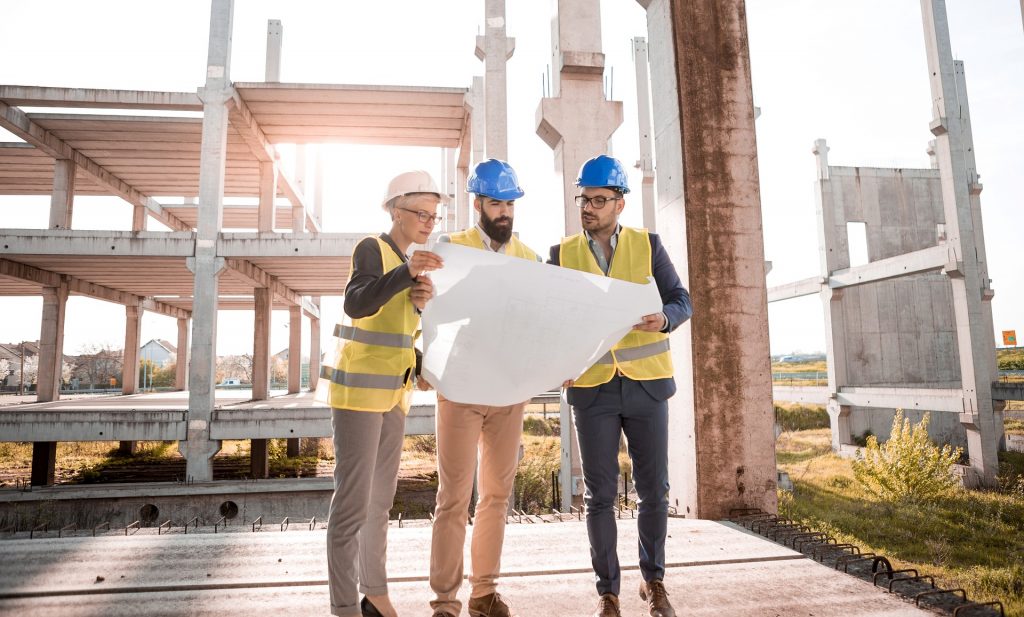
As you can imagine, the first phase of the construction loan process will be busy as you work closely with the lender and builder to discuss your custom home plans and arrange financing.
During the first week, you will complete an online application and provide employment history and additional information. We (the lender) will initiate a credit profile and order an appraisal; the latter helping to ensure the property is worth the amount of the construction loan.
Schumacher Mortgage wants to be sure that we do everything possible to assist you in achieving your homeownership goals. Your loan officer will guide you in preparing for an appraisal and explain the key areas to watch.
Appraisal Overview
Unlike the appraisal for an existing property, the one used for a construction loan is based on the estimated value of an uncompleted project—your planned custom home.
As your loan officer will explain, a formal plan referred to as the “blue book” is an essential requirement for pre-qualification and the appraisal. It features a comprehensive summary of construction details, such as floor plans, an estimated timeline of the building, and materials inventory. You’ll also show proof that you have an experienced builder to complete the project. The builder will supply the construction specifications based on your desired floor plan, specific design materials, and other details.
A licensed, experienced appraiser will evaluate the package of information, visit the building site, assign a value to the land, and analyze your project alongside similar homes in comparable areas. The appraiser follows accepted practices, although the overall approach is flexible.
The appraised value of your custom home should indicate what it will be worth once finished, provided the construction adheres to the building plans and specs. An accurate appraisal is instrumental in obtaining the optimum loan to build your home as designed while minimizing the lender’s risks.
The Appraisal Report
Appraisers typically use a form—the Uniform Residential Appraisal Report (URAR)—to document all pertinent details for their evaluation of your proposed custom home.
The basic URAR includes a parcel and location map, sections on neighborhood characteristics and comparable properties, and other critical information, and can be adapted for new home construction.
The appraiser will send the completed report and appropriate builder documents to the lender to review and decide on your loan.
Areas to Watch
You need to be aware of several factors that may affect the outcome of your appraisal. By considering some of the potential appraisal pitfalls in advance, you can help ensure a positive outcome.
Upfront Information: A successful appraisal will partially depend on the “blue book” of construction details. It must be as complete as possible so that the appraiser can develop an objective valuation.
Make sure you have provided all requested information on time. Review questions or concerns with your builder representative as soon as possible to avoid any delays.
Cost Summary: A cost breakdown is an essential element of the budget. The builder will specify the construction-related costs. However, there might be costs that you have incurred during or after the purchase of your land. These could include design and architectural fees, permit and school fees, and engineering costs. Check with your builder rep to determine whether they should be added to the total budget.
Land Status: The appraiser considers the overall condition of the parcel when assessing the value. There could be a difference in valuation if the land requires substantial pre-construction work, such as excessive grading, utility hookups, and other upgrades.
You must share a complete profile of your future homesite’s current condition so that it receives the highest possible valuation.
Construction Features: The materials inventory prepared by the builder will outline all of the unique features for your new home construction. Keep in mind that high-end fixtures, special exterior finishes, and other amenities will increase the construction cost but may not result in a corresponding value.
It may be best to select more cost-effective and value-added features when developing your dream home “wish list.” Consult with your builder rep to consider the appropriate options.
Comparable Properties: The appraiser will look for homes within a certain distance that are comparable in the lot and home size to your planned custom build. Ideally, your home will be in the accepted range. For example, if you propose building a much larger home on an oversized lot than those in the general area, the appraisal could be at a lower amount or the loan might not be approved “as is.”
Being familiar with the area where your lot is located will make it easier to develop a realistic construction plan.
Timeline
You should receive a copy of the appraisal within the first 17 days of the construction loan process. The ultimate goal is to accurately reflect the value of your future home so that your loan will be approved close to the necessary amount.
You will want to review the appraisal as soon as possible and discuss any questions or concerns with your loan officer. You may feel that it has omitted specific details or otherwise have an “unrealistic” valuation. In that case, you might be able to request a second appraisal.
The appraisal process may appear to be quite complicated. However, you can be confident that the Schumacher Mortgage and Schumacher Homes professionals are working as your partners to make it a stress-free and positive experience. Remember that you are one step closer on your journey to loan approval and custom homeownership once the appraisal is complete.
